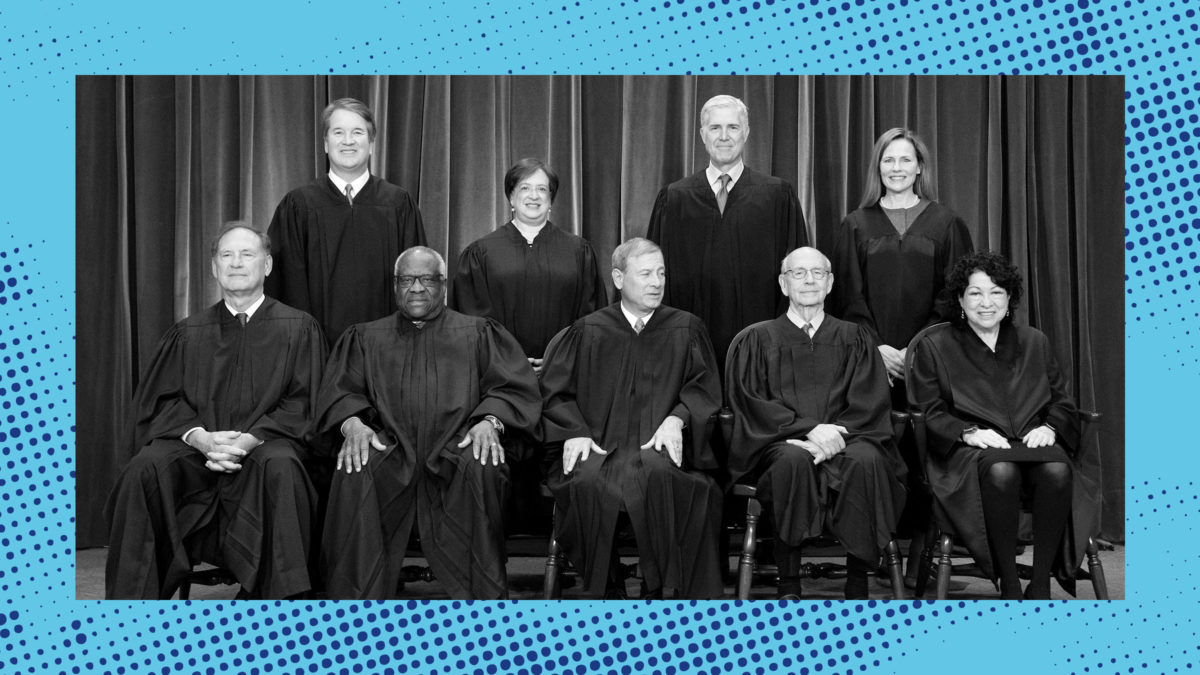On Wednesday, the Supreme Court added another notch to its “shadow docket decisions that chip away at the right to vote” belt, overturning a Wisconsin Supreme Court decision that had resolved an intense fight over the state’s latest redistricting effort. To stop the ongoing crisis of federal judges doing too much in the way of racial equity, the Court effectively vetoed a redrawn map that, in the Court’s esteemed view, favored Black voters a little too much.
As the Court published its decision, Senate Republicans remained embroiled in a desperate effort to sink federal appeals court judge Ketanji Brown Jackson’s nomination to the Supreme Court. As lawmakers complained about the perils of “activist” judges who improperly step into the policymaking realm, the Republican justices across the street were engaged in exactly that.
Every ten years, states have to redraw voting districts according to the latest census. After the 2020 results revealed a significant increase in the state’s Black voting age population, several voting rights groups sued in state court, claiming the Republican-created 2011 redistricting maps were unconstitutional racial gerrymanders. (They apparently did not trust the Wisconsin state legislature, still dominated by Republicans, with the task of drawing lines for another decade) Sure enough, the legislature suggested new maps that would have all but guaranteed the Republican Party six of the state’s eight congressional districts, primarily by diluting Black voting power in Milwaukee. Tony Evers, Wisconsin’s Democratic governor, vetoed the maps, calling them “gerrymandering 2.0.”
In an effort to resolve this fight, the Wisconsin Supreme Court considered alternative maps submitted by Evers, the state legislature, and the Wisconsin Elections Commission. Ultimately, it decided that Evers’s proposal, which added a seventh majority-Black state assembly district while otherwise leaving districts mostly unchanged, best reflected changes in the state’s voting population.
This was, apparently, unacceptable to the Wisconsin legislature, which asked the U.S. Supreme Court for relief. In its unsigned opinion from which only Justices Sonia Sotomayor and Elena Kagan dissented, the Court declared that the Wisconsin Supreme Court had relied too much on race by selecting the Governor’s redistricting map—a map it deemed, incredibly, a “racial gerrymander.” “The question that our VRA precedents ask and the court failed to answer is whether a race-neutral alternative that did not add a seventh majority-black district would deny black voters equal political opportunity,” the Court wrote. Apparently, the justices want to be completely sure that there is no alternative to an outcome that benefits Black people, and want a state court to do that research for them.
The only thing more audacious than the opinion is the Court’s decision to issue it on an emergency basis. Just last month, the Court in Merrill v. Milligan reversed a lower court decision that found Alabama’s proposed congressional map to violate the Voting Rights Act, reasoning that the 2022 midterm elections were too imminent to justify judicial intervention. In the Wisconsin Supreme Court, state election officials told the justices that a stay of the decision would impair their work. This time, with a map favorable to Democrats at stake, the U.S. Supreme Court was unmoved. It seems the Court that hollowed out the Voting Rights Act is now happy to block any other court from trying to protect the right it abandoned, too.
Most Supreme Court media attention this week understandably focused on Jackson’s confirmation hearings. But while Republicans slapped on face paint for their QAnon-inspired clown show, the sitting justices were using their power to strengthen the Republican Party’s electoral odds in Wisconsin while spiking efforts to achieve racial parity in the redistricting process. The conservatives’ anti-democratic crusade is an actual crisis facing the Court Jackson will soon join; Ted Cruz’s children’s books are not.

